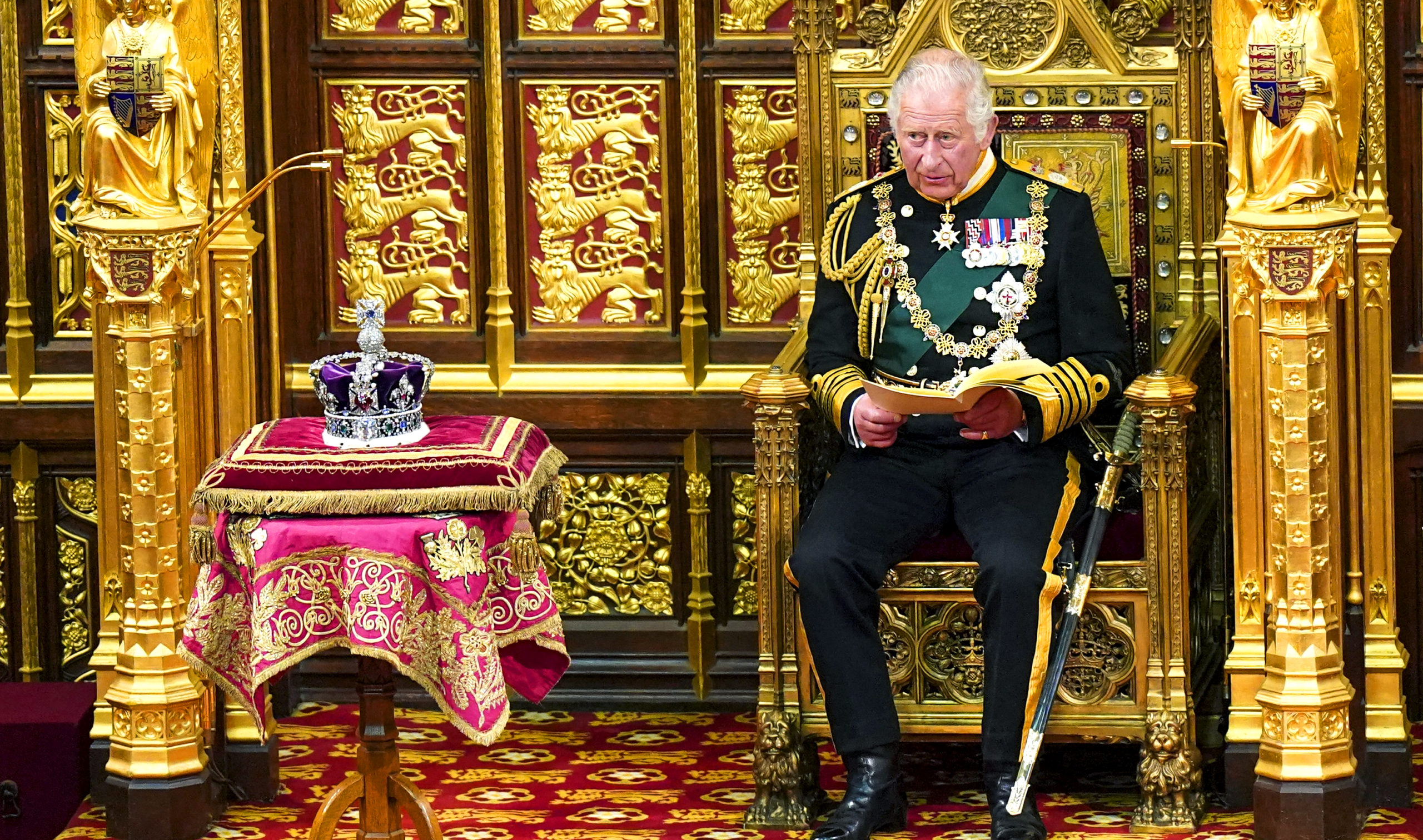My favourite tradition related to the State Opening of Parliament is that an MP is held hostage at Buckingham Palace for the duration, to ensure the safe return of the monarch. This absurd but rather glorious bit of pantomime apparently dates back four centuries, to the reign of Charles I, who of course had a rather lively relationship with the denizens of the Palace of Westminster.
For their part, the Commons and Lords can take a certain grim satisfaction from the fact that the Sovereign must don his or her robes under a copy of Charles’ death certificate; a gentle reminder of the need to treat the representatives of the people with respect.
The whole wonderful carry-on is surrounded by pomp and drama, from the searching of the Palace cellars to ensure that no modern successors to Guy Fawkes are on the premises, to the solemn formality with which the Sword Of State and the Cap Of Maintenance are processed to Westminster. Members of the House of Lords dig out their ermine. The heralds of the College of Arms wear those marvellous tabards emblazoned with the royal standard. The speech itself is given from a throne in the magnificently decorated Lords Chamber.
It is inevitable nowadays that such a self-consciously archaic proceeding should come under attack. Several commentators made predictable criticisms along the lines that it was a meaningless anachronism in our egalitarian age. Americans waded in to mock the bizarre medieval trappings of the old country, forgetting perhaps that their own President’s motorcade can consist of up to fifty vehicles, and that when Mr Biden visited Cornwall in 2021 he brought with him 400 Knights Of The Body, or Secret Service agents as they are sometimes known.
There is undoubtedly a certain difficulty, in our post-Monty Python world, where deference and hierarchy are dirty words, in viewing ceremonies like the State Opening and the Sovereign’s Speech with a straight face. But it is worth the effort to understand the appeal, and indeed the importance, of these enduring rituals.
For one thing, they help to maintain the sense of the country as an enduring community, rooted in a particular history in a particular place. The way we are governed, the way we live together, the freedoms we enjoy: these things did not appear from nowhere. They were not devised along unimpeachable theoretical lines by a clever lawyer. They emerged, and were tested, over centuries of argument and conflict and disagreement and discovery.
The continuity of the nation, its customs and institutions, really matters, because without unique traditions, without practices that reach back into the distant past to help us understand what marks our country out as special, we will simply be buffeted by the winds of What’s Happening Right Now.
Even more fundamentally, there is a deep human need for ritual. There can hardly be a culture anywhere in the world that does not possess the understanding that there are certain things that ought to be done in a certain way. Almost everyone intuitively understands this — look at baptisms, weddings, funerals, graduations. Rightly-ordered liturgy is deeply important to the great world religions.
This need for ritual arises from the need to imbue life, particularly communal life, with meaning and grandeur. No wonder, then, that people like pageantry and ceremony. It adds weight and dignity to the often squalid reality of politics, and offers the possibility of transcending the limitations and concerns of any particular era, because the seemingly bizarre theatrics and procedures become a kind of golden thread joining past, present and future Britons in a great unfolding national story.











Join the discussion
Join like minded readers that support our journalism by becoming a paid subscriber
To join the discussion in the comments, become a paid subscriber.
Join like minded readers that support our journalism, read unlimited articles and enjoy other subscriber-only benefits.
Subscribe